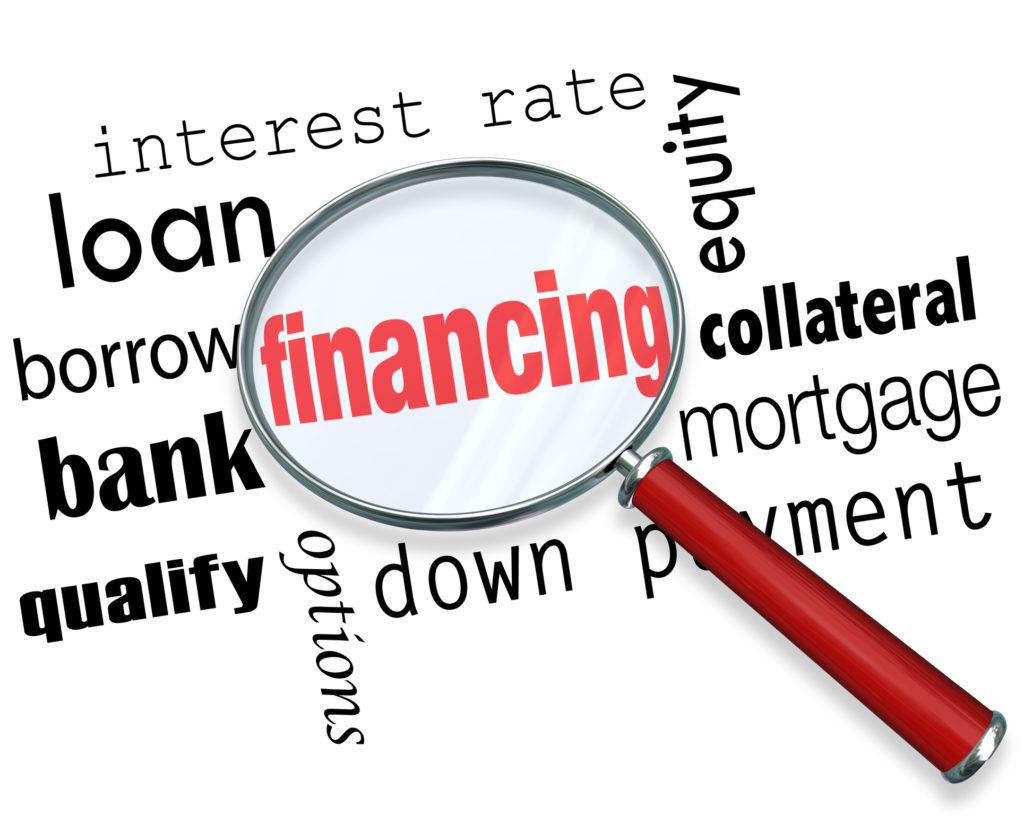5-Year Fixed or 3-Year Fixed: Which Mortgage Rate is Best for You?
When it comes to securing a mortgage in Canada, one of the pivotal decisions you’ll face is choosing between a 5-year fixed or a 3-year fixed mortgage rate. This choice is more than just a matter of picking a number; it’s about aligning your financial future with the right mortgage product to suit your unique situation. In this article, we dive deep into the nuances of 5-year and 3-year fixed-rate mortgages to help you navigate this important decision. Whether you’re a first-time homebuyer or looking to renew your mortgage, understanding the differences, advantages, and considerations of these mortgage terms can empower you to make an informed decision that benefits your financial wellbeing.
What Are the Key Differences Between 5-Year and 3-Year Fixed-Rate Mortgages?
Understanding the Fixed Mortgage Rate Concept
At its core, a fixed mortgage rate offers stability. Regardless of whether the Bank of Canada’s decisions send interest rates climbing or the market sees a rate drop, your monthly mortgage payment remains unchanged. This predictability is invaluable for long-term financial planning, offering a shield against the unpredictability of variable rates. By locking in a rate, you essentially freeze your mortgage payments at a set amount, allowing you to forecast and manage your financial future with greater precision.
Comparing 5-Year Fixed Mortgage Rates to 3-Year Fixed Rates
The primary difference between a 5-year fixed mortgage rate and a 3-year fixed mortgage rate is the term length. With a 5-year fixed, you’re committing to a locked interest rate for a longer period, which typically means a slightly lower rate than the shorter 3-year term. This difference in terms can significantly impact your monthly mortgage payment and overall interest paid over the life of the mortgage. While a 5-year term might offer more stability due to its longer rate lock-in, a 3-year term may provide the opportunity to take advantage of lower rates if market conditions are favourable when it’s time to renew.
Impact of Mortgage Term Length on Your Payments
The term length of your mortgage significantly affects both your monthly payments and the total interest you’ll pay over the life of the loan. A longer mortgage term like the 5-year fixed usually comes with a lower interest rate in today’s rate environment, reflecting the lender’s reduced risk of rate fluctuations over a more extended period. Conversely, the 3-year fixed mortgage term, with its typically higher rate, results in higher monthly payments but introduces the risk (and potential benefit) of having to renew the mortgage sooner, possibly at a lower rate, depending on future market conditions.
Why Might a 5-Year Fixed-Rate Mortgage Be the Best Option for You?
Benefits of Locking in a 5-Year Fixed Mortgage Rate
A 5-year fixed mortgage rate can provide unparalleled financial stability and peace of mind. By choosing a 5-year term, you shield yourself from the volatility of interest rate fluctuations, which can be especially beneficial in an environment where rates are expected to rise. This stability facilitates easier budgeting and financial planning, as you know exactly what your mortgage payment will be for the next five years. Furthermore, the longer term allows you to take advantage of current lower rates for a more extended period, potentially saving thousands in interest payments over the term’s duration.
How the Bank of Canada’s Decisions Affect Your 5-Year Fixed Rate
The interest rate for a 5-year fixed mortgage is indirectly influenced by the policy decisions of the Bank of Canada. While fixed mortgage rates are more directly tied to the bond market’s movements, the Bank of Canada’s adjustments to the prime rate can affect overall interest rate trends in the country. Choosing a 5-year fixed rate mortgage insulates you from any immediate impacts of these decisions, offering a safeguard against the unpredictability of variable mortgage rates and ensuring your financial strategy remains intact despite shifting economic winds.
Financial Stability Offered by a Longer Fixed-Rate Mortgage
Opting for a 5-year fixed-rate mortgage lays a foundation for financial stability. It’s well-suited for individuals who prioritize long-term budget predictability and those with a fixed income. The assurance of fixed monthly mortgage payments means you can plan your finances around other life goals without worrying about potential rate increases disrupting your budget. This financial predictability is a cornerstone of sound financial planning, allowing you to focus on building your future rather than fretting over fluctuating mortgage payments.
Considering a 3-Year Fixed-Rate Mortgage: Who Should Choose It and Why?
Advantages of Choosing a 3-Year Fixed-Rate Over a 5-Year Term
Choosing a 3-year fixed-rate mortgage offers several advantages, particularly for those who anticipate changes in their financial situation or the broader interest rate environment. This shorter term provides the flexibility to renew more frequently, potentially allowing borrowers to capitalize on lower rates sooner than they would with a 5-year term. For those who plan to sell their home in the near future, a 3-year mortgage minimizes the risk of having to break their mortgage and incur penalties. It’s an attractive option for individuals seeking lower rates and those who prefer to keep their options open to adjust to changing economic climates.
Variable vs. Fixed: Is a 3-Year Term Less Risky Today?
In the current financial landscape, choosing between a variable and a fixed-rate mortgage hinges on your risk tolerance and financial stability. A 3-year fixed term strikes a balance between locking in an attractively low rate and maintaining flexibility for the near future. With recent trends suggesting the possibility of fluctuating interest rates, a 3-year fixed-rate mortgage may serve as a prudent choice for those looking to hedge against the uncertainty of variable rates without committing to the longer tenure of a 5-year fixed rate.
How Interest Rates and Market Predictions Influence the 3-Year Mortgage Decision
Market predictions and interest rate trends play a critical role in deciding to opt for a 3-year fixed-rate mortgage. If economic indicators and expert analyses suggest that interest rates will remain stable or decrease, committing to a shorter, 3-year mortgage term could be advantageous. This choice allows homeowners to potentially renew at a lower rate, offering significant savings on interest payments. It’s a calculated risk that can offer dividends in the right economic conditions, making it an appealing choice for savvy borrowers closely monitoring market trends.
How to Decide the Best Mortgage Term for Your Financial Situation
Evaluating Your Financial Stability and Forecast for the Next 5 Years
Choosing the best mortgage term for your financial situation begins with a thorough evaluation of your current financial health and future income stability. If your income is stable and you have a solid understanding of your future financial goals, a 5-year fixed mortgage could be an excellent way to lock in current rates and ensure predictable monthly payments. Conversely, if you anticipate significant income fluctuations or plan to move or upgrade your home in the near future, a 3-year term may offer the flexibility you need without the commitment of a longer term.
Consulting with a Mortgage Broker: Tailored Advice on Mortgage Terms
A knowledgeable mortgage broker can be an invaluable resource in navigating the complexities of choosing the right mortgage term. With access to a wide array of mortgage products and an understanding of current market trends, a broker can provide personalized advice tailored to your financial situation. They can help you weigh the pros and cons of different mortgage terms, taking into account your long-term financial goals, risk tolerance, and the potential for future rate changes. Consulting with a mortgage broker ensures you’re well-informed to make the best decision for your financial future.
Comparing Mortgage Payments: The Impact of Different Mortgage Terms on Your Budget
Understanding the impact of different mortgage terms on your monthly budget is crucial. Utilizing mortgage calculators or consulting with financial advisors can provide a clearer picture of how a 5-year or 3-year fixed rate will affect your monthly expenses and long-term financial health. Comparing these scenarios allows you to assess which term aligns with your financial goals and budgetary constraints, helping ensure you choose a mortgage that supports your financial stability and homeownership aspirations.
Fixed vs. Variable Rates: Understanding Your Options Beyond Fixed Terms
Exploring the Pros and Cons of Variable-Rate Mortgages
While fixed-rate mortgages offer stability, variable-rate mortgages present an opportunity for potentially lower rates, depending on market conditions. Variable rates are linked directly to the prime rate, meaning your monthly mortgage payment can fluctuate. This option might appeal to those who expect rates to fall or who are able to absorb potential increases in their monthly expenses. Evaluating the pros and cons of variable-rate mortgages against your financial stability and risk tolerance is essential to making an informed decision.
Fixed-Rate Mortgages vs. Variable-Rate Mortgages: Which Offers Better Peace of Mind?
The decision between a fixed-rate and a variable-rate mortgage often comes down to your need for stability versus your willingness to take on risk for potential reward. Fixed-rate mortgages provide the peace of mind that comes with knowing exactly what your mortgage payment will be for the duration of your term. In contrast, variable-rate mortgages offer the chance to save on interest if rates fall, but they also pose the risk of increasing payments. Your personal financial situation, risk tolerance, and market predictions should guide your choice between these two types of mortgages.
The Role of the Prime Rate in Deciding Between Fixed and Variable Mortgage Rates
The prime rate plays a critical role in both fixed and variable mortgage rates. While fixed rates are determined by the bond market and broader economic factors, variable rates move directly with the prime rate. Understanding how changes to the prime rate could influence your mortgage payments is crucial when considering a variable-rate mortgage. In times of economic stability or when rates are expected to decrease, a variable rate mortgage may offer cost savings. However, if market predictions indicate rising rates, locking in a fixed rate could protect you from higher payments.

